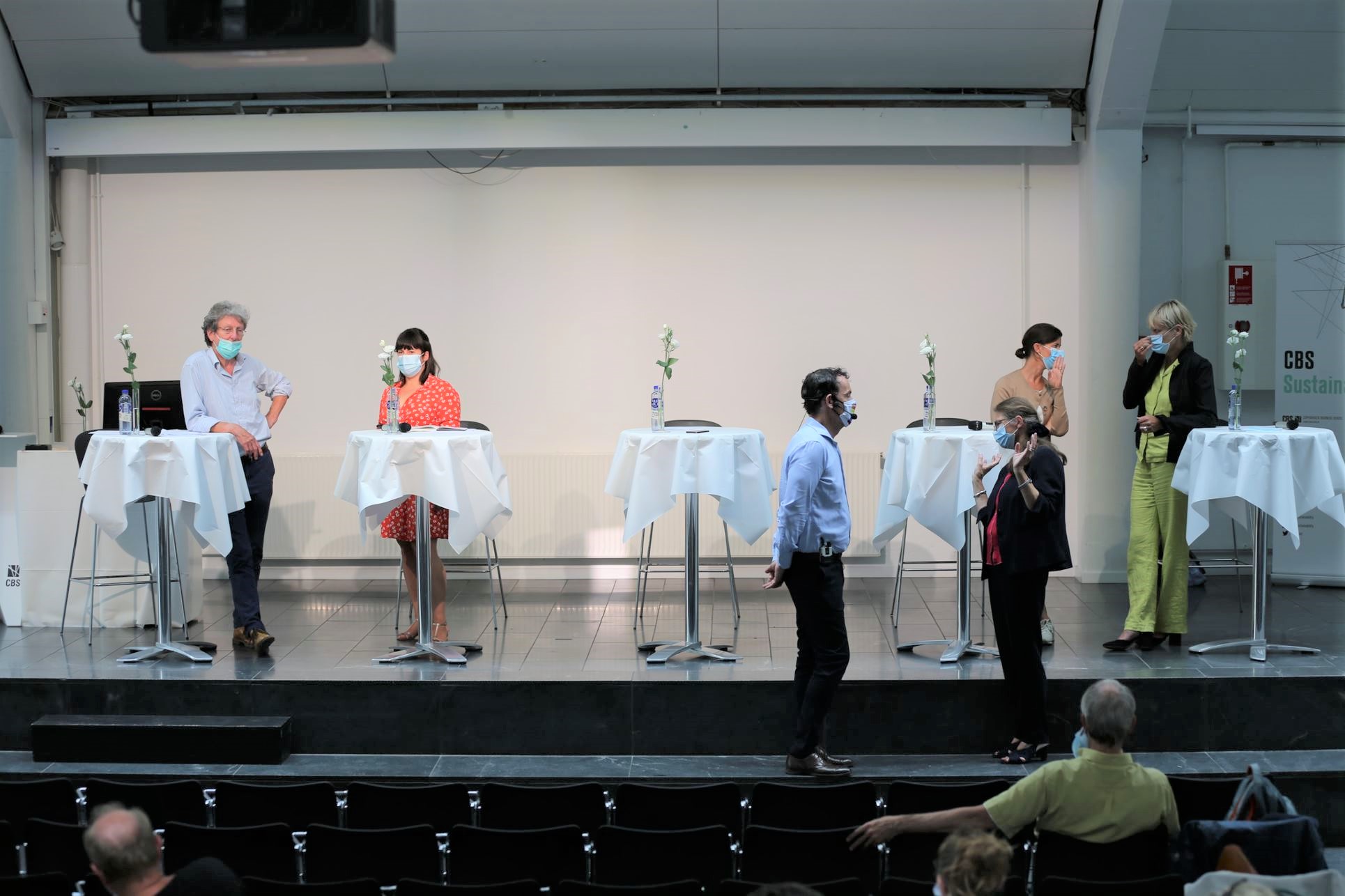Professor Mette Morsing takes over the UN PRME
By Jeremy Moon
The CBS Sustainability Centre and the Department of Management, Society & Communication (MSC) recently held a Panel Discussion to farewell Mette Morsing as she becomes the new Head of PRME (Principles for Responsible Management) based at the UN Global Compact office in New York.
This is clearly a challenge. Mette will be a rare academic in a world of international officials. She will lead a small team that supports the PRME initiative. PRME is intended to transform business and management education through research and leadership. It consists of 800+ business and management schools that have signed up to implement six principles concerning responsible and sustainable business education.
Of course, the 800+ schools reflect very different educational and business cultures, and may have very different understandings of responsible and sustainable business. Doubtless the schools have other concerns so they may prioritize these differently… not least in these troubled times.
So in order to help – as well as challenge – Mette, we designed the Panel around the question: “What Should Business Schools Know and Do about Sustainability?” The Panel duly raised challenges for Mette, reflecting their various vantage points around business and management education. The Panel members were:
- Lise Kingo, Independent Board Member and former CEO & Executive Director, United Nations Global Compact (by video)
- Florence Villeséche, Co-Director of the Diversity and Difference Platform and Associate Professor at Dept. of Management, Politics and Philosophy
- Gregor Halff, CBS Dean of Education
- Caroline Aggestam Pontoppidan, Academic Director of CBS PRME & Associate Professor at Dept. of Accounting
- Claus Meyer, food entrepreneur and Adjunct Professor at the Department of Management, Society & Communication.
Mette Morsing responded to the perspectives raised by the Panelists and other participants were drawn into the conversation. This covered a range of issues and approaches to the sustainability challenges:
From the role of the ethic of care for people in business, to the role of data in sustainability; from how to integrate and govern environmental, social and governance responsibilities to forms of business school engagement for sustainability; and of course, strategies for green transformations.
I was particularly struck by the way that Claus Meyer contextualized his own work in the state of the food business which he described as being characterized by greed, obesity and other recipes for ill-health, over-supply, and starvation among other things. So, Claus takes a big picture and identifies and develops his responsibilities in his bakeries, restaurants and philanthropic work in this light.
How should Deans of Business Schools regard ‘their business’?
On the one hand, they could refer to the market for business management education, demand and supply; vital assets; competitors and collaborators; the impact of and influence upon regulators. But what I get from Claus is the big picture thinking.
So should the Deans bring into their strategic thinking the circumstances from which their students come – and don’t come, and the state of the businesses that their graduates enter (the distributions, resource uses, the dominant values)?
Isn’t this what they need to know for understanding and developing their impact on sustainability? Is this the logic of a stakeholder approach to sustainability?
OK, Jeremy this is just talk… but as Mette reminded us in one of her most significant papers, aspirational CSR talk may be an important resource for social change … and thus part of the walk [1]. So, my parting advice to Mette is to try and get Business School Deans to better understand and connect with their wider context in order to act for sustainability.
References
[1] L.T. Christensen, M. Morsing & O. Thyssen (2013). CSR as aspirational talk. Organization, 20(3), 372-393.
About the author
Jeremy Moon is Professor at Copenhagen Business School, Chair of Sustainability Governance Group and Director of CBS Sustainability. Jeremy has written widely about the rise, context, dynamics and impact of CSR. He is particularly interested in corporations’ political roles and in the regulation of CSR and corporate sustainability.
